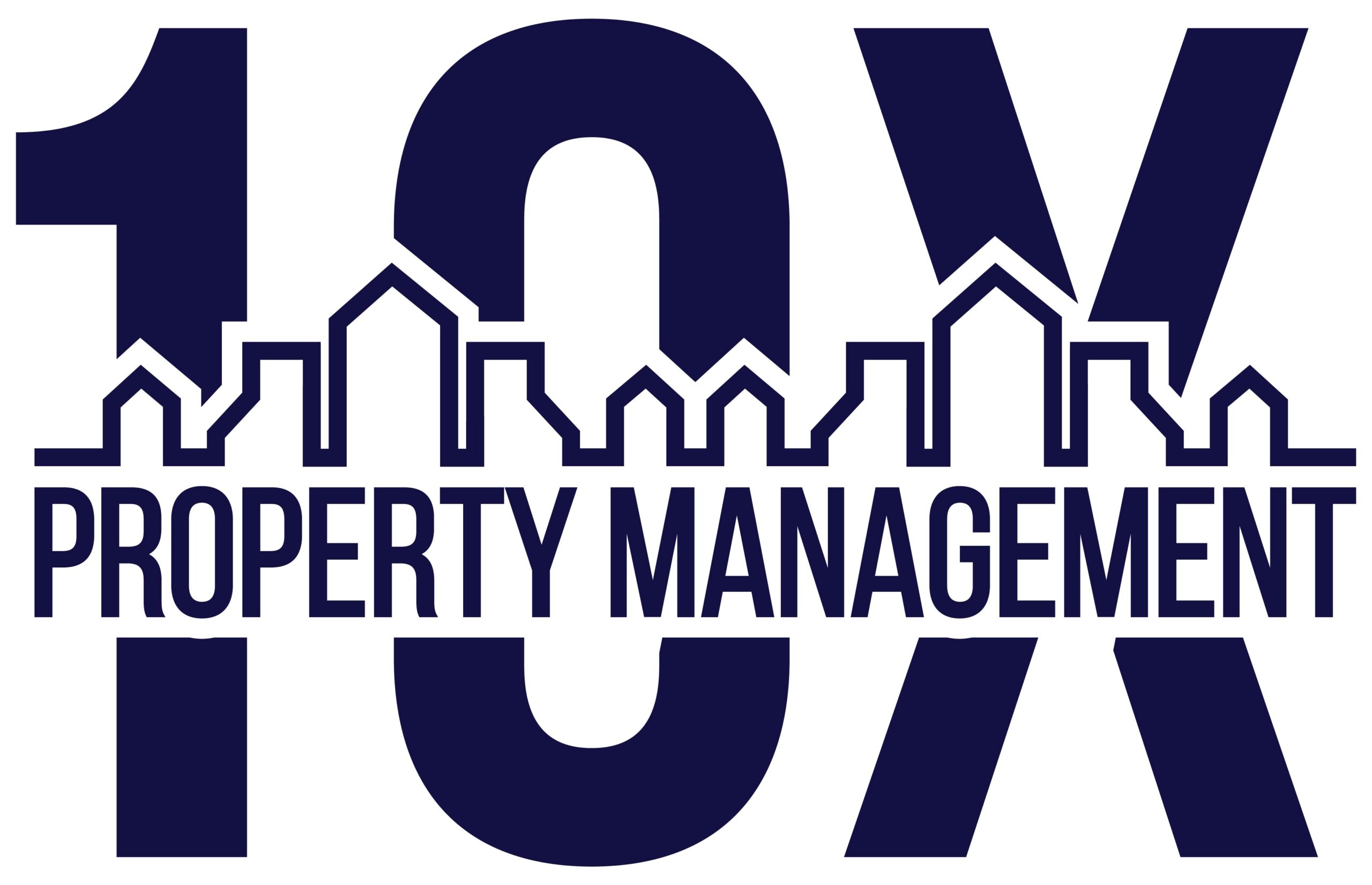Are you a landlord considering renting out your house in Columbus due to a job relocation or a lifestyle change? Whatever your reason, renting out a property can be both financially rewarding and strategically advantageous.
Beyond the benefits like tax deductions on property taxes, increasing rental property values, and a steady monthly rental income, managing a rental property effectively requires a strategic approach.
To help landlords navigate this renting process, 10X Property Management has written this guide.
We’re here to provide landlords with expert insights and practical advice on how to maximize your rental experience when you rent out your unit.
In this article, we’ll share five essential tips for successfully renting out your house in Columbus, ensuring you achieve the best possible outcomes. Let’s get started!
1. Know What You’re Getting Yourself Into
Avoid renting without proper knowledge of landlord tenant laws—missteps can have repercussions. For example, asking the wrong screening questions can severely affect your financial outcomes, and fair housing violations can lead to penalties of up to hundreds of thousands of dollars.
As a landlord, it’s crucial to understand the full scope of your rental responsibilities before renting out your house. Beyond simply collecting rent and securing tenants for your rental properties, you’ll also need to:
- Know your legal duties, such as landlord tenant laws, fair housing- and habitability laws.
- Respond to the tenant’s repair requests within a reasonable time.
- Market the rental property and screen prospective tenants.

- Draft a proper lease agreement.
- File your tax returns with the IRS.
Before learning the ropes of being a landlord yourself, hire a property manager. A good full-service property management company will help you minimize stress and maximize your rental income when you rent out your house.
2. Prepare the Property for Occupation by Tenants
Under Chapter 5321 of the Ohio Revised Code, landlords are required to ensure that rental properties are habitable for renters. This means your rental property must meet the state’s fundamental safety and health standards.
As a landlord, failing to comply with this rent law can lead to serious consequences. For instance, renting out a home with the following issues would constitute a violation:
- Structural issues, such as sagging ceilings, cracks in the walls, or unstable foundations.
- Fire hazards like a lack of smoke detectors or faulty wiring.
- Water damage resulting from flooding or a leaky roof.
- Pest infestations that pose health risks to the tenant.
- Lack of running water, electricity, or any other essential utility.
- Lack of proper sanitation, such as the home not having kitchen or bathroom facilities.
- Mold issues.
3. Market Your Columbus Home
The next step is to list your home on platforms where prospective tenants are most likely to search. Start by defining the type of tenant you’re targeting, so you can tailor your marketing efforts effectively to renters.

Are you aiming to attract and rent to students, families, or professionals? For instance, if your focus is on students, concentrate on digital marketing channels such as social media and online listings.
As a landlord, you might also consider placing ads on campus bulletin boards, digital displays, and in local newspapers. Engaging with student events can further boost your rental visibility.
As a first-time landlord, this rental process can seem overwhelming. In such cases, hiring an experienced property manager can be highly beneficial.
Not only will it save rental property owners time, but it will also ensure you attract and rent to high-quality tenants quickly and efficiently.
4. Do Thorough Tenant Screening
After a successful marketing process, inquiries will start to come in from prospective tenants. Tenants may want to know about things like:
- When is the house available for rent?
- Who is responsible for the payment of utility bills?
- How long will the lease agreement run?
- Are pets allowed? If so, do you have any restrictions or fees?
- What amenities come with the house?
- How much is the security deposit?
The questions may touch on things that the rental ad may have missed. On your part, aside from answering their questions, try to find out more about the prospective tenant.

The goal is to establish whether or not the tenant is going to be a good fit for your property from the get-go.
The following are some pre-screening questions you can ask them to narrow down your pool.
- How much do you make per month?
- How many people will be moving in with you?
- Why are you looking to move?
- Do you have any pets? If so, please provide more details.
- When are you available to view the property?
- When are you planning to move in?
Next, schedule a property showing. Make sure the property looks its best by cleaning it thoroughly and making necessary repairs. You may also want to highlight key features to help the property stand out.
During the showing, be welcoming and friendly and answer questions as honestly as possible.
Once you’re done with this, ask the remaining pool of tenants to fill out an application form. Then lastly, screen them thoroughly by verifying the details.
Call prior landlords and employers. Verify their credit details from Equifax, Experian, TransUnion, or any other reputable credit checking bureau.
5. Hire a Property Manager
As a first-time landlord, you’re likely to encounter a range of potential pitfalls, but one of the most critical is failing to thoroughly screen tenants. In your eagerness to rent out the property quickly, you might overlook important red flags that could cause significant issues down the line.
Neglecting thorough tenant screening can lead to problems such as late monthly rent payments, disputes with neighbors, lease agreement violations, and damage to the property.
Fortunately, hiring a professional property manager can alleviate these concerns. They will not only help you avoid costly mistakes but also ensure a smoother rental process, providing you with peace of mind and maximizing your return on investment.
Bottom Line
Renting out your house in Columbus can indeed be a highly rewarding venture, both financially and strategically. However, success requires careful planning and diligent management.
From ensuring your property meets all legal requirements to effectively marketing it and screening potential tenants, every step is crucial to maximizing your return on investment and ensuring a smooth rental experience.
If you’re looking for expert guidance and support, 10X Property Management is here to help. Our team of seasoned property managers and technology specialists is dedicated to helping you navigate the complexities of property rental with confidence.
We provide personalized solutions tailored to your needs, ensuring you achieve your rental goals efficiently and effectively.
Don’t leave your investment to chance. Reach out to 10X Property Management today, and let us put our expertise to work for you!


Recent Comments